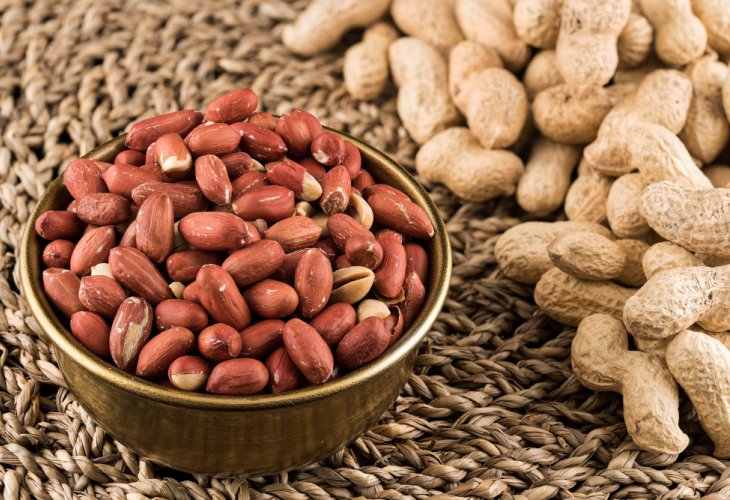Want to Lose Weight? Consider Adding Peanuts to Your Diet
A new clinical study found that eating peanuts about half an hour before two meals a day was associated with significant weight loss. Adina Bakr from the DMC Center for Diabetes Care: "Foods rich in protein and fiber provide a feeling of fullness and help reduce the urge to snack."
 (Photo: Shutterstock)
(Photo: Shutterstock)Faculty members from Texas Tech University and the University of South Australia examined the effects of peanuts on blood sugar balance, blood pressure, and their contribution to weight loss. The study found that consuming lightly salted peanuts twice a day before meals led to weight loss, reduced blood pressure, and improved fasting blood sugar levels.
The study included two groups of Australian adults at medium or high risk of type 2 diabetes and lasted six months. Both groups received weight loss guidance. The control group (32 participants) received weight loss guidance without peanuts. The experimental group (44 participants) received the same diet plus 35 grams of roasted peanuts twice a day, 30 minutes before 2 meals.
"Our research found that peanuts, which are rich in unsaturated fats, can actually aid in weight loss," said Kristina Petersen, one of the study leaders. "We often avoid peanuts when trying to lose weight because they are high in calories. However, peanuts have a significant impact on our satiety. They provide a feeling of fullness that lasts a long time and this can be very helpful for those on a weight loss diet."
After six months, both groups lost weight and reduced sugar levels similarly, despite the peanut group consuming an additional 400 calories per day from adding 70 grams of peanuts to the diet. The reduction in blood pressure was greater in the peanut group.
The study results showed a significant drop in blood pressure, a dramatic improvement in sugar levels, in fasting glucose and insulin control, as well as an improvement in HbA1c levels, a measure of long-term blood sugar control. The peanut group reduced systolic blood pressure by 5 mmHg, which is associated with a 10% reduction in the risk of major cardiovascular events.
Protein and fiber-rich foods provide a feeling of fullness and can therefore reduce the urge to snack and even improve our nutritional choices. Peanuts are considered an excellent source of protein. One serving (30 grams) provides 7 grams of protein, nearly 3 grams of fiber, and 19 types of vitamins and minerals, including potassium, B vitamins, and iron. 30 grams of peanuts provide 10% of the recommended daily allowance of folic acid, important for reducing the risk of fetal defects and protection against cardiovascular diseases. In this study, the treatment group received an additional 15 grams of protein just from peanut consumption. Peanuts are a low-sodium food, they are among the richest sources of arginine, an amino acid important for immune function and muscle building. They are also a good source of niacin (vitamin B3) which helps balance blood fats.
Peanuts are an excellent source of magnesium, an essential mineral involved in many processes in the body, including bone building, muscle and nerve regulation, maintaining heart rhythm, blood pressure balance, and sugar levels. Many studies point to the connection between peanut consumption and the reduction of the risk of heart diseases and sugar balance indicators. Many patients enjoy the availability of this nutritionally valuable food without raising their sugar levels, and along the way, they also benefit the digestive system thanks to its high fiber content. Diabetics can check this using a continuous glucose meter without pricks.
Adina Bakr is a diabetes dietitian and ketogenic nutrition expert at the DMC Center for Diabetes Care and chairman of the Future Association.

